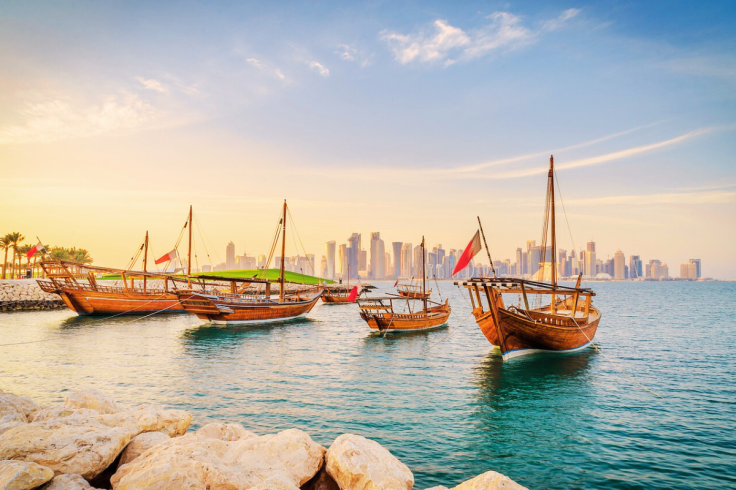First, Gulf of America. Now Trump Wants to Rename the Persian Gulf — Here's Why Iranians Are Furious
Reports suggest Trump plans to call it the 'Arabian Gulf' during his Middle East tour

Donald Trump's penchant for rebranding has taken a provocative turn. After floating the idea of renaming the Gulf of Mexico the 'Gulf of America' in 2024, the US President is now eyeing a historic waterway: the Persian Gulf.
Reports suggest Trump plans to call it the 'Arabian Gulf' during his Middle East tour from 12 to 15 May 2025, a move that has ignited outrage across Iran. This isn't just a name change; it's a geopolitical lightning rod, uniting Iranians in defence of their cultural heritage and exposing tensions with Arab neighbours.
A Name Steeped in History
The Persian Gulf, named since at least 550 BC under the Persian dynasty of Cyrus the Great, is more than a geographical marker for Iranians, it's a symbol of national identity. Stretching along Iran's southern coast, it has been called the Persian Gulf in ancient Greek, Roman, and Arab texts for millennia.
'The name is woven into our history, our poetry, our very soul,' said Iranian Foreign Minister Abbas Araghchi on 7 May 2025, warning that altering it would 'bring the wrath of all Iranians'. Yet, some Arab nations, including Saudi Arabia and the UAE, have lobbied for 'Arabian Gulf' since the 1950s, citing their coastal presence and economic clout.
Trump's reported plan, set to be announced during visits to Saudi Arabia, Qatar, and the UAE, aligns with these Arab allies' preferences.
According to a New York Times report on 11 May 2025, Trump teased the decision, saying, 'I'll have to make a decision. I don't want to hurt anybody's feelings.' But for Iranians, this feels like a deliberate slight, especially after Trump's earlier Gulf of America jest, which was seen as a nationalist stunt.
Why Iranians Are United in Anger
The proposal has achieved a rare feat: uniting Iran's fractured political spectrum. From reformists to hardliners, Iranians view the Persian Gulf's name as non-negotiable.
Posts on X reflect this sentiment, with users noting on 7 May 2025 that Trump's initiative has 'united all Iranians, opposition, pro-regime, left, right'.
Iran's government has been vocal, with Araghchi calling the move 'hostile' and lacking 'legal or geographical effect'. In 2023, Iran protested Iraq's use of 'Arabian Gulf' for a football tournament, even suing Google in 2012 for dual-naming the gulf on maps.
The timing stings too. As Tehran negotiates with Washington over its nuclear programme, Trump's move is seen as a diplomatic jab, potentially derailing talks. 'It's called Persian not because it's cute, because it's ours,' wrote one user on X, warning that it could bolster Iran's hardline regime.
Geopolitical Ripples and Uncertain Outcomes
Trump's decision isn't just about Iran. It signals a tilt toward Arab Gulf states, key players in his Middle East strategy. The UAE and Saudi Arabia, eyeing trade and nuclear energy deals, have long pushed for the name change.
But the move risks escalating tensions with Iran, already strained by Trump's 'maximum pressure' policies. A Guardian article noted that diplomats fear it could derail nuclear talks, with Iran's response potentially affecting Red Sea trade routes.
Can Trump unilaterally rename the gulf? Legally, no—geographical names are governed by international bodies like the UN. But the US adopting 'Arabian Gulf' could shift global perceptions, as seen with Google's dual-naming compromise.
For now, Iranians remain defiant, vowing to protect their gulf's name. Trump's gambit may win Arab applause, but it risks uniting a nation against him.
© Copyright IBTimes 2025. All rights reserved.





















